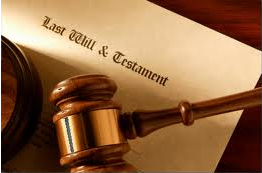Benjamin Franklin said there were only two things certain in life: death and taxes. He was absolutely right. But he forgot one more important thing…probate! It is of vital importance that survivors of a deceased person understand what probate means, the procedures involved, and the legal ramifications of their decisions, which is why everyone should take the time to sit down with a South Florida Probate Attorney.
Probate is the legal process employed by probate courts in identifying the assets of a decedent, paying off any existing debts, and distributing assets to the beneficiaries of an estate. This process is triggered by presenting the decedent’s death certificate. Although there is no set time frame for the entire probate process, survivors of a decedent can generally expect the process to last at least 6 months. However, depending on the complexity of the estate, it can take many years before probate is resolved. One can also expect to be in the frequent presence of a judge, attorneys, the executor of the deceased’s will, health care providers, the IRS if any taxes such as estate or income are owed, and credit card companies if there are any outstanding debts. This can seem like a daunting process no one wants to be a part of.
There is hope. This situation can become less painful by choosing a law firm you can trust to help you navigate through this complicated process in an efficient and simplified manner. An attorney will ensure your will is properly written and executed and help you establish a trust that fits your needs. You will receive guidance on gifting and property transfers that will save your family a headache by the possibility of almost avoiding probate altogether.
For more information on successful Florida estate planning and probate, please contact the South Florida law firmof Wild Felice & Pardo, P.A. at 954-944-2855 or via email at info@wfplaw.com to schedule your free consultation.
It’s a Wild world. Are you protected?


